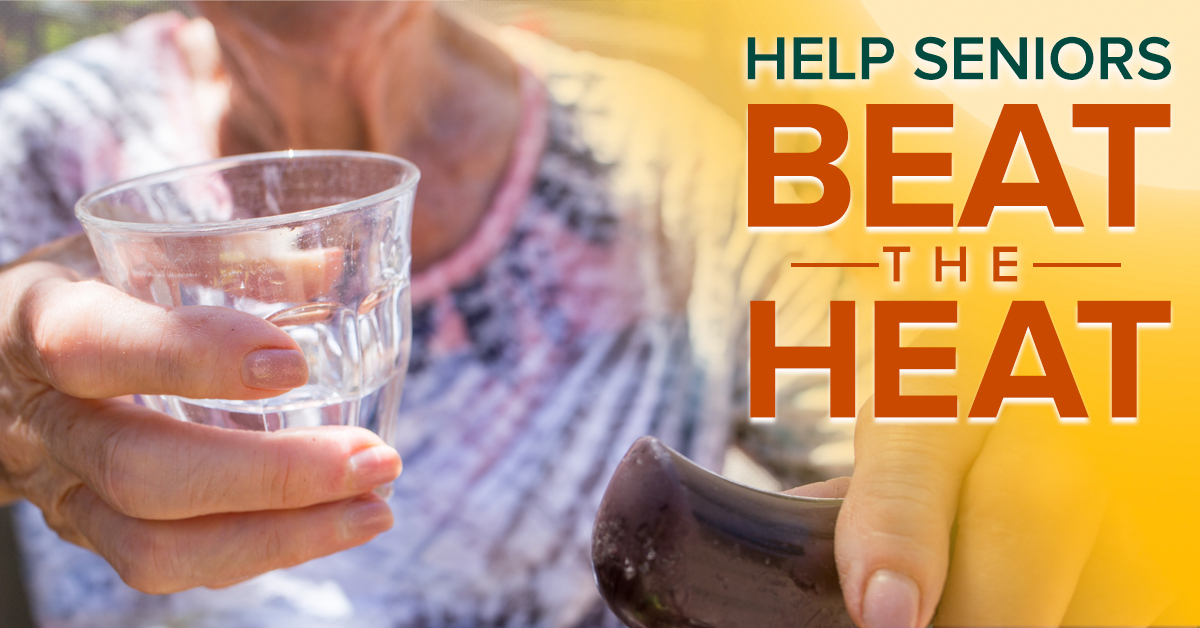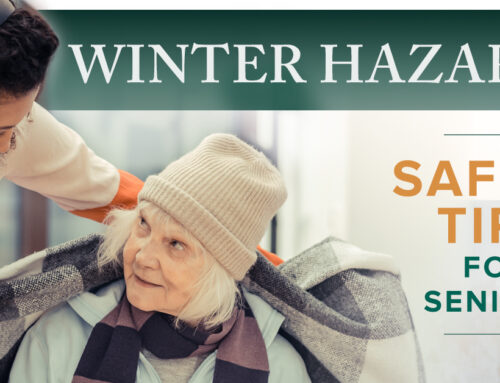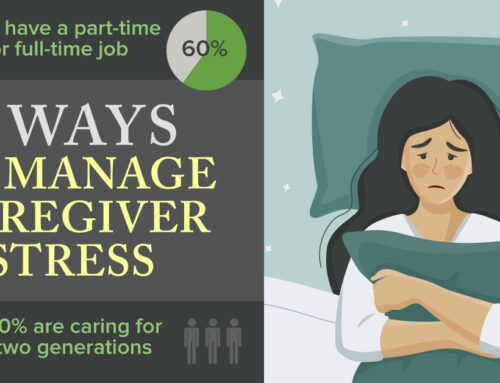Helping Seniors Beat the Heat
It’s not even officially summer yet, but record heat has already gripped much of the country. While the high temperatures and suffocating humidity make life unpleasant for almost everyone, it can be dangerous, even deadly, for older adults.
People age 65 and over are more prone to heat stress, because they don’t adjust as well as young people to sudden changes in temperature. They’re also more likely to have chronic conditions and take prescriptions – both of which can affect the body’s ability to control its temperature or sweat.
If you’re over age 65, the Centers for Disease Control and Prevention advises the following:
- Stay in air-conditioned buildings as much as possible.
- Do not rely on a fan as your main cooling source – especially if it’s brutally hot outside.
- Drink more water than usual, and don’t wait until you’re thirsty to drink. If your doctor has limits the amount of fluids you can drink, ask him/her how much you should have during hot weather.
- Avoid drinks with caffeine, alcohol or large amounts of sugar, as they can cause dehydration.
- Don’t heat up your house by using the stove or oven to cook.
- Wear loose, lightweight, light-colored clothing.
- Take cool showers or baths to cool down.
- Avoid long periods in the direct sun or in unventilated rooms.
- If you must be outside in the heat, reschedule activities for cooler times of the day and rest often in shady areas.
- Check on friends and neighbors and ask them to do the same for you.
- Seek immediate medical attention if begin showing symptoms of heat related illness – muscle cramps, headaches, nausea or vomiting.
If you’re caring for an older loved one, the CDC recommends keeping a close eye on them – visiting daily, if possible – asking these questions:
- Are they drinking enough water?
- Do they have access to air conditioning?
- Do they know how to keep cool?
- Do they show any signs of heat stress?
At HCAN, we understand that visiting your senior loved one every day isn’t always possible – especially if you’re a long distance caregiver. That’s where we come in – we can be there when you can’t. Our caregivers are trained to provide exceptional care and spot potential problems – like heat related stress.
To learn how we can help, visit www.hcanthrive.com or call your local HCAN supported office.






